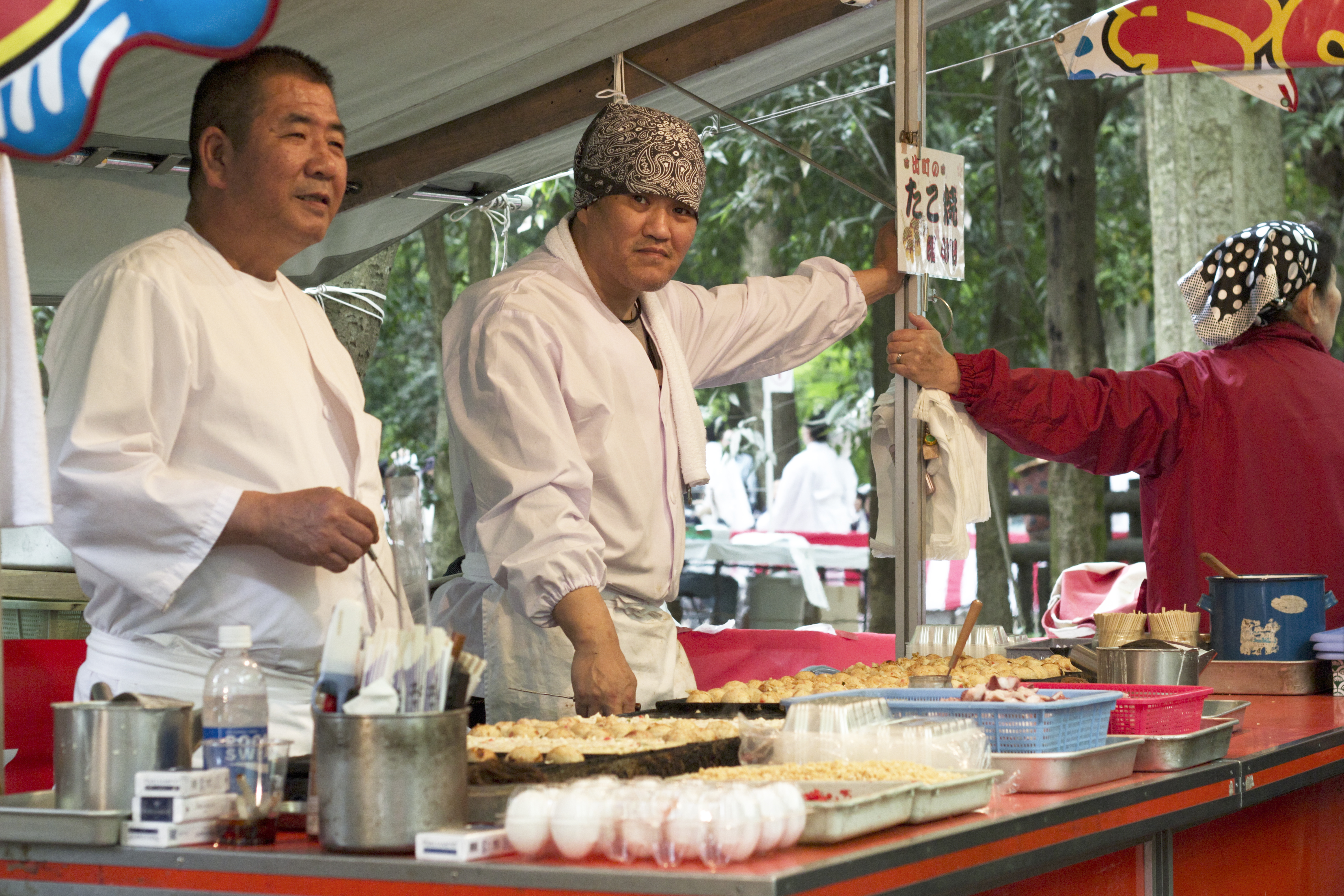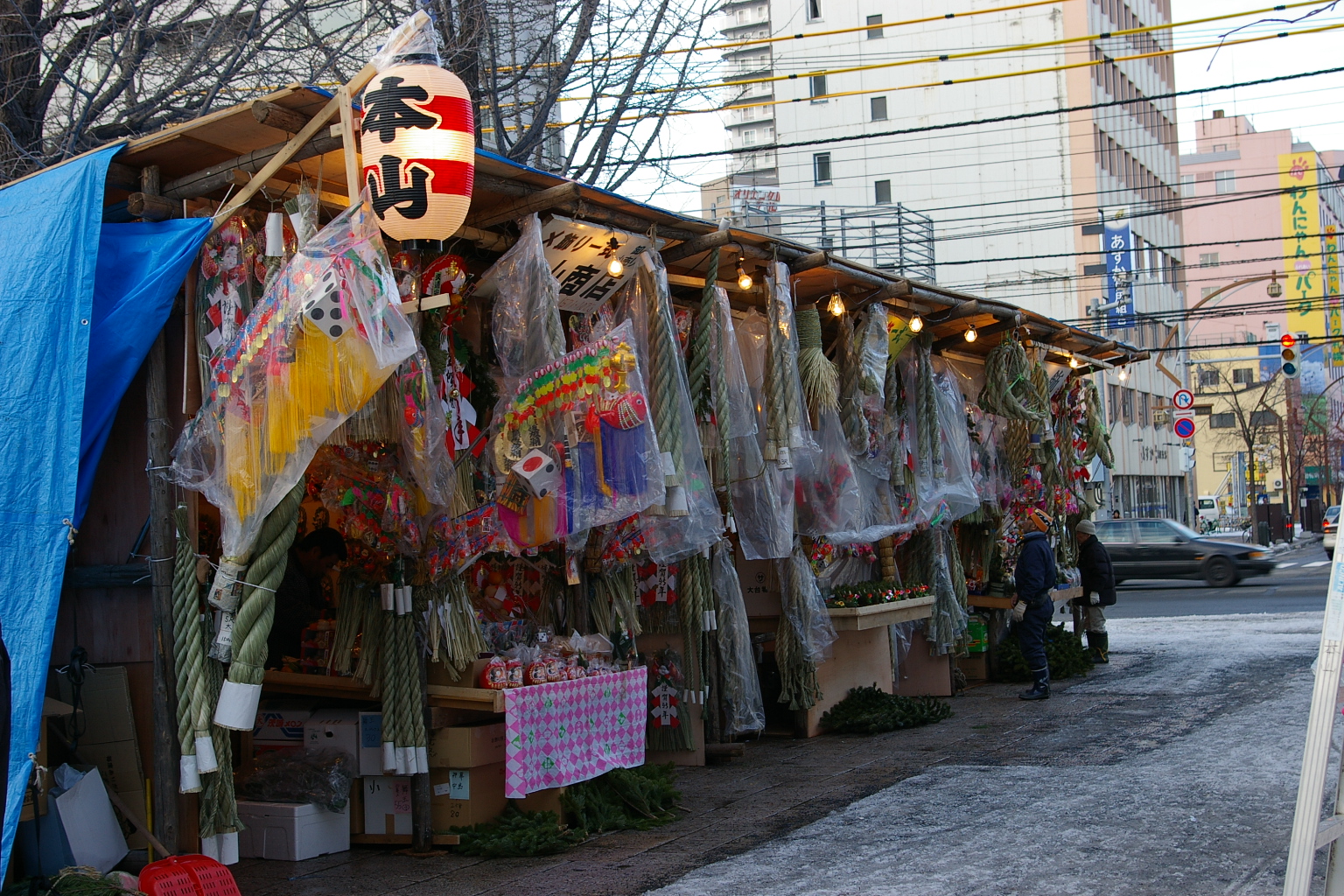Tekiya09 on:
[Wikipedia]
[Google]
[Amazon]

 ''Tekiya'' ( or ; "
''Tekiya'' ( or ; "
''Yakuza: Japan's Criminal Underworld'', exp. ed.
Berkeley: University of California Press, 2003. , {{ISBN, 0-520-21562-1. Yakuza Japanese merchants

peddler
A peddler (American English) or pedlar (British English) is a door-to-door and/or travelling vendor of good (economics), goods. In 19th-century United States the word "drummer" was often used to refer to a peddler or traveling salesman; as exem ...
s") are itinerant Japan
Japan is an island country in East Asia. Located in the Pacific Ocean off the northeast coast of the Asia, Asian mainland, it is bordered on the west by the Sea of Japan and extends from the Sea of Okhotsk in the north to the East China Sea ...
ese merchants who, along with the ''bakuto
''Bakuto'' (博徒) were itinerant gamblers active in Japan from the 18th century to the mid-20th century. They were one of two forerunners (the other being ''tekiya'', or peddlers) to modern Japanese organized crime syndicates called ''yakuza'' ...
'' ("gamblers"), historically were predecessors to the modern ''yakuza
, also known as , are members of transnational organized crime syndicates originating in Japan. The Japanese police and media (by request of the police) call them , while the yakuza call themselves . The English equivalent for the term ''yak ...
''.
A loose American equivalent of the ''tekiya'' could be seen in carnies.
History
''Tekiya'' ranked as one of the lowest social groups during theEdo period
The , also known as the , is the period between 1600 or 1603 and 1868 in the history of Japan, when the country was under the rule of the Tokugawa shogunate and some 300 regional ''daimyo'', or feudal lords. Emerging from the chaos of the Sengok ...
. As they began to form organizations of their own, they took over some administrative duties relating to commerce, such as stall allocation and protection of their commercial activities. During Shinto
, also called Shintoism, is a religion originating in Japan. Classified as an East Asian religions, East Asian religion by Religious studies, scholars of religion, it is often regarded by its practitioners as Japan's indigenous religion and as ...
festivals
A festival is an event celebrated by a community and centering on some characteristic aspect or aspects of that community and its religion or cultures. It is often marked as a local or national holiday, Melā, mela, or Muslim holidays, eid. A ...
, these peddlers opened stalls and some members were hired to act as security. Each peddler paid rent in exchange for a stall assignment and protection
Protection is any measure taken to guard something against damage caused by outside forces. Protection can be provided to physical objects, including organisms, to systems, and to intangible things like civil and political rights. Although ...
during the fair.
The ''tekiya'' were a highly structured and hierarchical group with the ''oyabun'' (boss) at the top and ''kobun'' (gang members) at the bottom.Raz, Jacob. "Insider Outsider: The Way of the Yakuza." Kyoto Journal. Last modified 17 April 2011. https://kyotojournal.org/society/insider-outsider/. This hierarchy resembles a structure similar to the family – in traditional Japanese culture
Japanese culture has changed greatly over the millennia, from the country's prehistoric Jōmon period, to its contemporary modern culture, which absorbs influences from Asia and other regions of the world.
Since the Jomon period, ancestral ...
, the ''oyabun'' was often regarded as a surrogate father, and the ''kobun'' as surrogate children. During the Edo period, the government formally recognized the ''tekiya''. At this time, within the ''tekiya'', the ''oyabun'' were appointed as supervisors and granted near-samurai
The samurai () were members of the warrior class in Japan. They were originally provincial warriors who came from wealthy landowning families who could afford to train their men to be mounted archers. In the 8th century AD, the imperial court d ...
status, meaning they were allowed the dignity of a surname and two swords.
Unlike the ''bakuto
''Bakuto'' (博徒) were itinerant gamblers active in Japan from the 18th century to the mid-20th century. They were one of two forerunners (the other being ''tekiya'', or peddlers) to modern Japanese organized crime syndicates called ''yakuza'' ...
'' who gamble (gambling was and still is illegal in Japan), the ''tekiya''protection racket
A protection racket is a type of racket and a scheme of organized crime perpetrated by a potentially hazardous organized crime group that generally guarantees protection outside the sanction of the law to another entity or individual from vio ...
s and would sometimes engage in gang warfare with other groups. In addition, their itinerant lifestyle often attracted fugitives to join their ranks.
Although the ''tekiya''/''bakuto'' lines have been blurred with the emergence of the modern Japanese ''yakuza
, also known as , are members of transnational organized crime syndicates originating in Japan. The Japanese police and media (by request of the police) call them , while the yakuza call themselves . The English equivalent for the term ''yak ...
'' in the 20th century, many of today's yakuza still identify with one group over the other.
See also
*Midway (fair)
A game of popping balloons with darts for prizes—a common part of a carnival or fair midway
A midway at a fair (commonly an American fair such as a county or state fair) is the location where carnival games, amusement rides, entertainment, ...
References
Further reading
* Kaplan, David E., and Alec Dubro''Yakuza: Japan's Criminal Underworld'', exp. ed.
Berkeley: University of California Press, 2003. , {{ISBN, 0-520-21562-1. Yakuza Japanese merchants